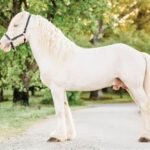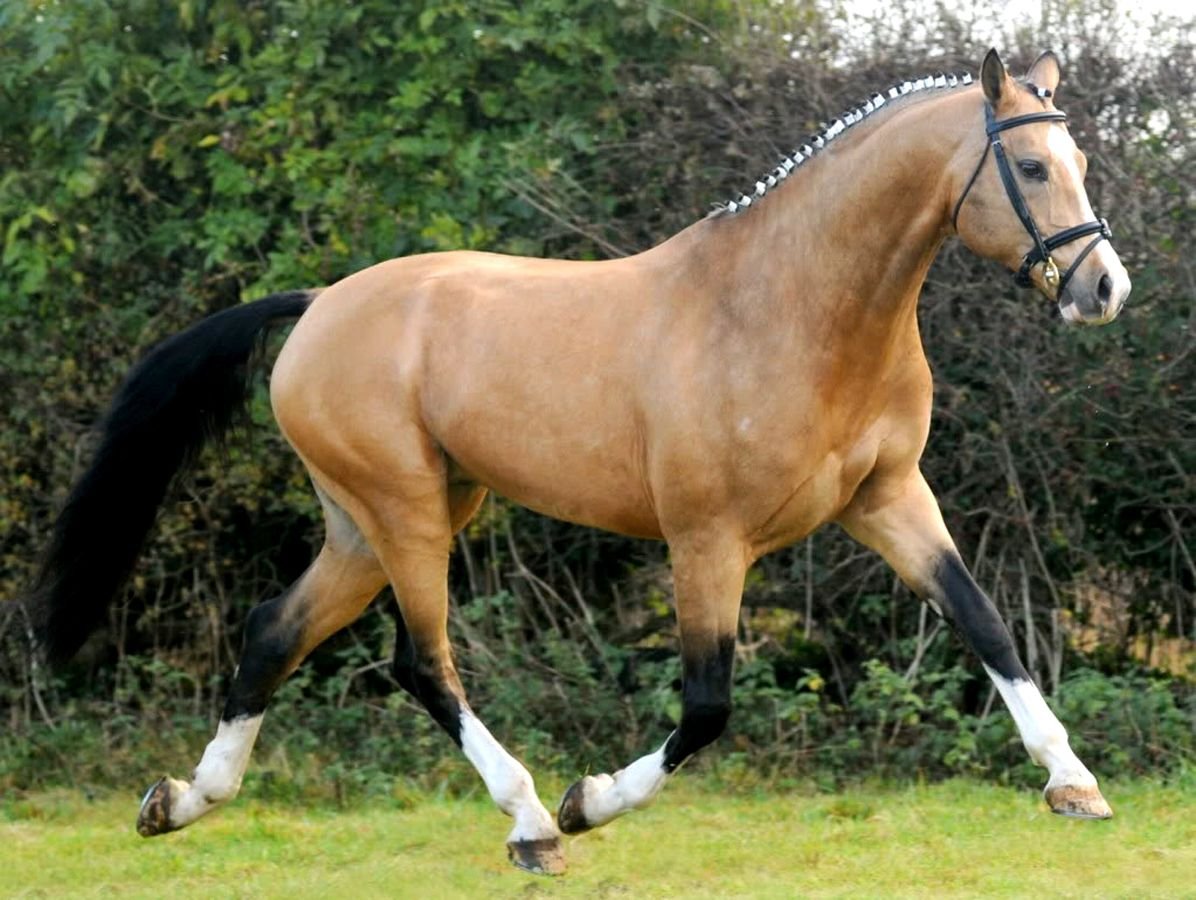Warmbloods are renowned for their athleticism, intelligence, and trainability, making them a popular choice for competitive equestrian sports. However, like all horses, they are susceptible to a variety of health issues that can impact their performance and overall well-being. By understanding the common ailments that affect warmbloods and taking proactive steps to prevent them, you can ensure that your horse stays healthy and performs at its best.
In this article, we’ll explore some of the most common health issues in warmbloods and offer practical tips for prevention and care. From hoof health to nutrition and colic prevention, here’s what you need to know to keep your warmblood in peak condition.
1. Hoof Health and Laminitis
Hoof health is critical for any horse, and warmbloods are no exception. Poor hoof care can lead to serious problems such as lameness or more severe conditions like laminitis. Laminitis is an inflammation of the tissues that bond the hoof wall to the coffin bone, which can cause severe pain and even permanent damage if not treated promptly.
Preventing Hoof Problems:
- Regular Hoof Trimming: Ensure your warmblood’s hooves are trimmed and maintained regularly by a professional farrier. Overgrown hooves can cause imbalance and strain on joints.
- Check for Abnormalities: Inspect hooves regularly for cracks, bruises, or other signs of infection. Early detection of issues can prevent more serious conditions.
- Proper Nutrition: A balanced diet with adequate minerals, particularly biotin, will support hoof growth and strength. Supplements like biotin, zinc, and methionine may be beneficial.
- Adequate Rest and Exercise: Avoid overworking your horse, especially on hard or uneven surfaces. Give your warmblood time to rest and recover between intense training sessions.
2. Colic Prevention
Colic is one of the most common and serious ailments in horses, including warmbloods. It refers to any abdominal pain caused by issues within the digestive system, and it can range from mild discomfort to life-threatening conditions. The causes of colic can vary, including gas buildup, impaction, or twisting of the intestines.
Preventing Colic:
- Consistent Feeding Schedule: Feed your warmblood small, frequent meals throughout the day rather than large amounts at once. This helps prevent sudden changes in gut pressure and reduces the risk of digestive upset.
- Fresh, Clean Water: Ensure that your horse has constant access to clean, fresh water. Dehydration can contribute to colic and digestive issues.
- Quality Hay and Forage: Make sure your warmblood has access to high-quality hay or pasture. A diet rich in fiber helps maintain digestive health and prevent constipation or impactions.
- Exercise and Movement: Regular exercise is crucial for promoting healthy digestion. Allow your warmblood to move freely in the pasture or during training to stimulate their digestive system.
- Monitor Behavior: Be aware of signs of colic such as pawing, restlessness, rolling, or loss of appetite. If these signs occur, contact your vet immediately.

3. Joint Health and Arthritis
Warmbloods are highly active horses often involved in rigorous training and competition. Over time, the constant strain on their joints can lead to wear and tear, especially in the knees, hocks, and fetlocks. Arthritis, a degenerative joint disease, is a common concern for older warmbloods, but younger horses can also experience joint problems due to repetitive stress.
Maintaining Joint Health:
- Joint Supplements: Consider providing your warmblood with joint supplements containing glucosamine, chondroitin, and MSM to help support cartilage health and prevent arthritis.
- Regular Stretching and Warm-Up: Before exercise or competition, ensure your warmblood is properly warmed up and stretched to prevent joint strain. Include post-exercise cool-downs to help with recovery.
- Adequate Rest: Don’t push your warmblood too hard during training. Allow for sufficient rest periods to let the joints recover and prevent overuse injuries.
- Manage Weight: Maintaining a healthy weight reduces the stress on your horse’s joints, especially the legs and hooves.
4. Respiratory Issues
Respiratory issues can be a concern for any horse, especially those who spend time in stables with poor ventilation or are exposed to allergens such as dust and mold. Conditions like heaves (recurrent airway obstruction) or equine asthma are common in horses with respiratory sensitivities.
Preventing Respiratory Problems:
- Proper Stable Ventilation: Ensure your warmblood is housed in a well-ventilated stable with proper airflow. Poor ventilation can cause the buildup of dust, ammonia, and other irritants that can affect their breathing.
- Clean Bedding: Use clean, dust-free bedding materials and avoid hay that is dusty or moldy. Mold spores can trigger respiratory issues in sensitive horses.
- Regular Exercise in Open Spaces: Allow your warmblood to exercise outdoors in fresh air as much as possible. Avoid excessive exercise in areas with poor air quality.
- Monitoring for Symptoms: Watch for signs such as coughing, nasal discharge, or labored breathing. If your horse exhibits these symptoms, consult a vet promptly.
5. Skin and Coat Care
Warmbloods typically have a thick, healthy coat, but like any horse, they can suffer from skin irritations, fungal infections, or parasitic infestations. Regular grooming and proper care are essential to maintaining their coat and skin health.
Maintaining Healthy Skin and Coat:
- Regular Grooming: Groom your warmblood regularly to remove dirt, debris, and loose hair. This helps maintain skin health and improves blood circulation to the coat.
- Parasite Control: Regular deworming and parasite control are essential for maintaining skin health and preventing issues like dermatitis or hair loss. Work with your vet to create an effective parasite control program.
- Moisturize Dry Skin: In colder months, horses can experience dry skin. Use moisturizing shampoos or oils to keep their skin hydrated and prevent cracking or itching.
- Fungal Prevention: Warmbloods may be prone to fungal infections, especially if they live in humid climates. Keep their living area clean and dry, and treat any fungal infections promptly with antifungal treatments.
6. Dental Care
Dental health is often overlooked, but it plays a critical role in a horse’s overall well-being. Horses, including warmbloods, can develop dental problems such as sharp points, uneven wear, or gum disease, which can affect their ability to eat and maintain proper nutrition.
Preventing Dental Issues:
- Regular Dental Checkups: Have your warmblood’s teeth checked regularly by an equine dentist to identify any problems early on. This is especially important as horses age.
- Proper Diet: A diet with adequate fiber helps wear down a horse’s teeth naturally. Ensure that your warmblood has access to appropriate forage to aid in proper dental health.
- Monitor Eating Habits: If your warmblood is having trouble chewing or is dropping feed, it may indicate dental problems that need attention.
Conclusion
Taking preventative measures to maintain your warmblood’s health is essential for their performance and longevity. Regular veterinary check-ups, a balanced diet, proper grooming, and monitoring for common health problems will help keep your horse in peak condition. By focusing on prevention and proactive care, you can help your warmblood avoid many common ailments, ensuring that they remain happy, healthy, and ready to perform at their best.











